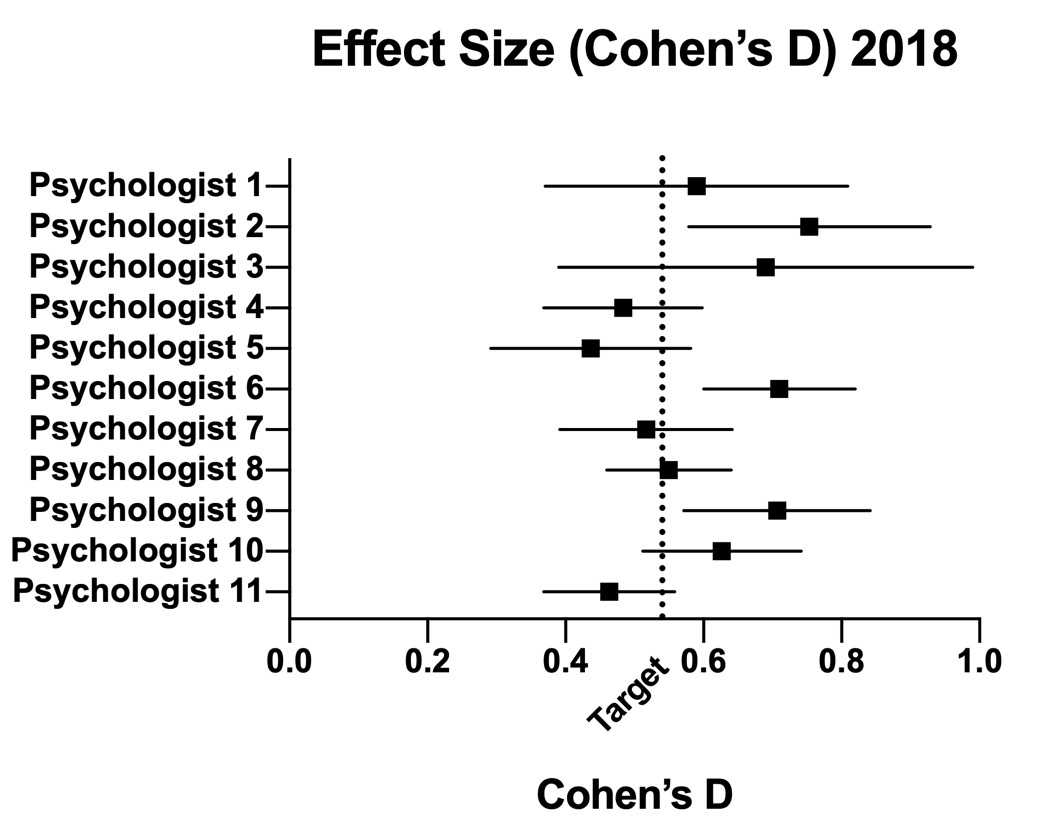Outcome Driven
At Benchmark Psychology we believe that your investment in therapy should lead to a measurable outcome. We have been frontrunners in the use of outcome measurement as part of therapy. Unless you opt out, you will be given a brief symptom measure before every session. Your psychologist will discuss the results of this outcomes survey, and together you can decide if therapy should continue as is, or if a change is needed. At Benchmark we are serious about partnership, and are genuinely interested in working with you to make sure you get the best therapy experience and outcome.
Accountability
As well as being used to guide your treatment, we also use the outcome scores to make sure our psychologists are accountable for the quality of services they provide.
Every year we de-identify all of your data, and collate it with every else's. We then calculate the effectiveness of each psychologist and compare their performance to relevant benchmarks. We want to make sure that all of our psychologists are delivering an excellent quality of care. We use a statistic called Cohen's D, which allows us to compare our effectiveness to these benchmarks.
Outcomes
Our outcome data for 2018 is presented below. We are incredibly proud of these results. As you can see, the majority of our psychologists are meeting or exceeding the best practice 'target' we set for ourselves. The small number of psychologists under the target have missed the target by less than the margin of stastical error.

Cohen's D is a statistical value used to describe the effect size of clinical interventions. For more information on how it is calculated and how to interpret it, go here.
Benchmarks
From time to time, people ask where we got the benchmarks used in this graph. They are sources from the following:
Real World - This benchmark was taken from a large study by Hansen, Lambert and Forman, which looked at real world outcomes in therapy from a range of large organisations (D = 0.15)
Efficacy Trial - Smith and Glass conducted a landmark meta-analysis where they compared all published results for therapy outcomes in 1981. This has been replicated more recently by several authors, but the results have not changed much over time. Please note, the original paper is not easy to find online, but a good summary can be found here. (D = 0.54)
Super shrinks - This year a wonderful paper was published by our colleague and friend Dr Daryl Chow from Curtin University looking at what makes top performing therapists. We have used Daryl's data as aspirational goals for all psychologists at Benchmark. (D = 1.1)
